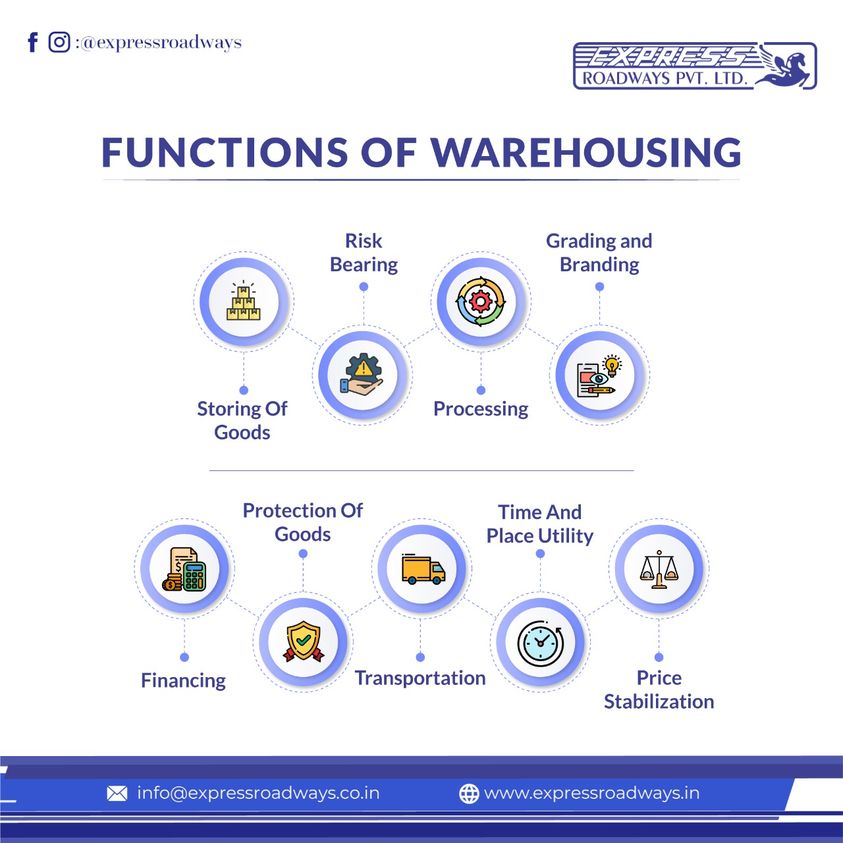
The functions of warehousing are:
Storing Of Goods
The first and primary function of warehousing is storing goods. The goods are manufactured in the factory and stored in a warehouse until they are demanded by the consumer or brought by the buyers.
Risk Bearing
Warehouses bear some risks when they store the goods. It takes the responsibility of keeping the goods safe and secure from theft, loss, damage, or even fire. It is the duty of the warehouse keeper to take all the necessary precautions to prevent mishaps.
Processing
Some products are not consumed in the way they are manufactured. They have to be processed further to make them usable. So, warehouses undertake these services on behalf of the business.
Grading and Branding
Warehouses provide grading and branding services to the organization. They offer them the facilities of mixing, branding, and packaging products to handle and sell them conveniently.
Financing
When the goods are kept in the warehouse, the business unit receives the receipt concerning its deposit. The warehouse keeper issues a document on the name of the owner of the goods, which is considered proof of the products kept in the warehouse.
Protection Of Goods
Once your goods are stored in a warehouse, it is protected from loss and damage from dust, dirt, heat, wind, and moisture. It also adjusts its surrounding concerning the nature of a particular product. This way, the cost incurred on the loss or spoilage of goods is cut down significantly.
Transportation
Some logistics companies in India offer transportation facilities to bulk depositors. They even collect goods from the manufacturing place and send products to the delivery place.
Time And Place Utility
Warehouse produces time and place utility by storing goods until they are demanded and producing the goods at the place where they are needed.
Price Stabilization
Warehousing is crucial in terms of price stabilization. It reduces significant fluctuations in costs by storing the goods when the supply outpaces demand. It stores a large stock of goods so that it can immediately be provided in the market at the time of deficiencies. This way, the increase in demand helps you in avoiding prices.